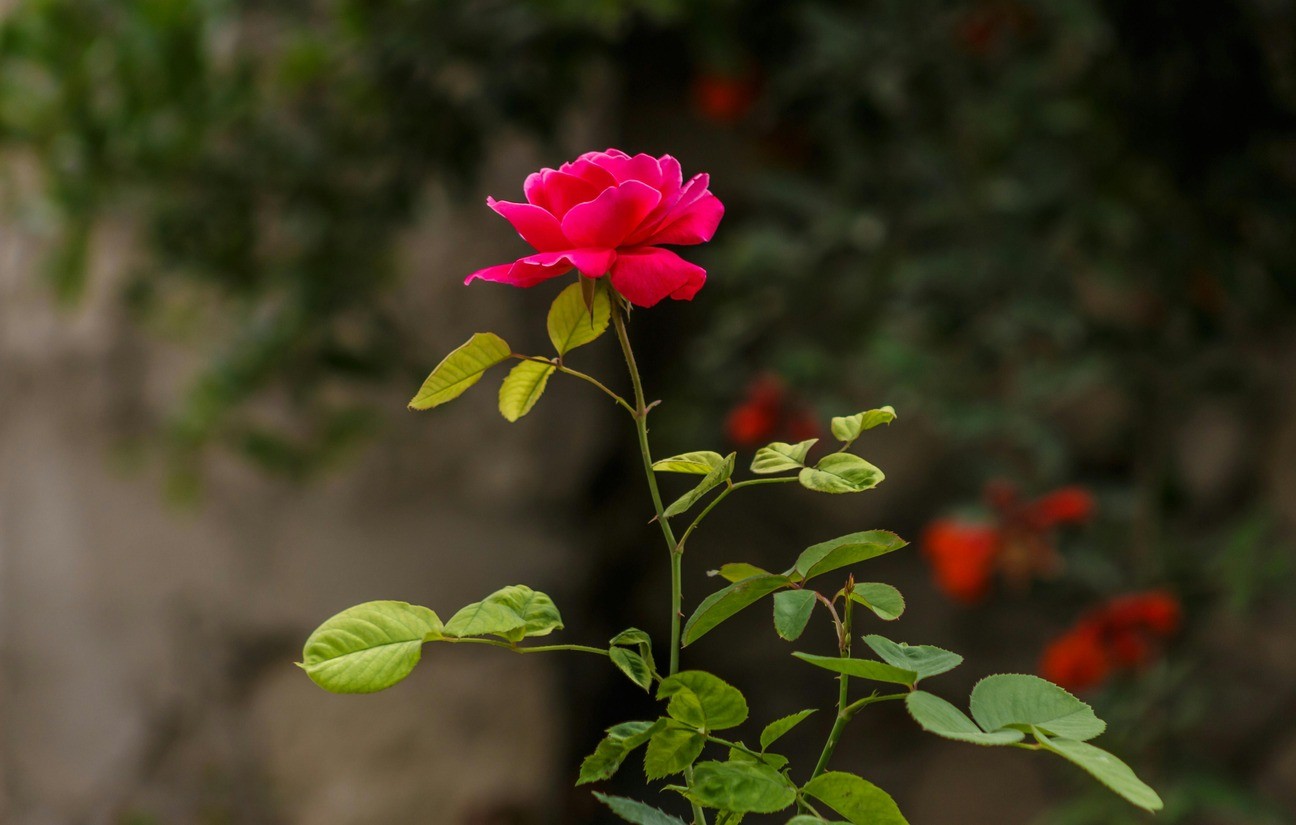Rose Pest Control offers practical solutions for managing pests in homes.Finding the source of the problem is the initial stage in pest management tactics. To find out what the creepy crawly is that you’ve seen floating around your home.

With over 150 years of experience, Rose Pest Control has established itself as a trusted name in pest management. They specialize in eradicating common pests like rodents, insects, and termites using the latest technology and eco-friendly methods. Homeowners and business owners alike can rely on their expertise to tackle any pest problem, big or small.
Their team of certified professionals is committed to providing customized treatments that are both efficient and cost-effective. Rose Pest Control prioritizes customer satisfaction and safety, making them a top choice for those needing reliable pest control services.
The Importance Of Rose Pest Control
Rose Pest Control Roses are loved for their beauty and scent. But pests can ruin them. Keeping roses safe from pests helps them stay healthy and look good. Knowing which bugs hurt roses and how to spot them is critical. Let’s learn about common pests and how to tell if they exist.
Common Rose Pests
Roses face many bug threats. The Japanese beetle eats rose petals and leaves. Aphids suck sap from new growth. Spider mites harm the leaves. Here are some significant pests:
- Aphids: Small green bugs on stems and leaves.
- Spider Mites: Tiny spiders that weave webs under leaves.
- Japanese Beetles: Shiny bugs that chew on flowers and leaves.
- Rose Slugs: They look like tiny caterpillars and eat leaves.
- Thrips: Thin bugs that feed inside the flowers.
Signs Of Pest Infestation
Knowing bug signs can save your roses. Look for these clues:
- Eaten Leaves: Holes or chewed edges mean bugs might be feeding.
- Weak Plants: If roses look sad and droopy, pests might be sucking their sap.
- Odd Spots: Black or white dots on leaves could be bug poop or eggs.
- Webbing: Fine webs on roses are a sign of spider mites.
- Sticky Leaves: A shiny, sticky layer can show that aphids were there.
Act fast if you see these signs. It helps keep your roses safe from harm.
Natural Methods For Rose Pest Control

Rose Pest ControlGardens are beautiful, especially with roses. But pests can ruin them. Let’s talk about natural ways to keep pests away from roses without chemicals. Roses can stay healthy and bloom beautifully with the proper care. We will explore how beneficial insects and companion planting can protect your roses naturally.
Beneficial Insects
Some bugs are suitable for your roses. They eat the nasty bugs. Let’s see who these helpers are:
- Ladybugs: They love to eat aphids, a standard rose pest.
- Green Lacewings: Their babies are great at eating pests.
- Praying Mantises: They catch and eat many kinds of bugs.
Knowing these insects can be your garden’s friends is essential. They help keep the balance. You can attract them by planting certain flowers or by not using harmful sprays. This way, roses grow more robust, and pests stay away.
Companion Planting
Plants growing together can help each other. This is called companion planting. Some plants make pests go away. Others attract good bugs. Look at this table to know which plants to grow with your roses:
Companion Plant Benefits
Garlic Scares off pests like aphids and beetles.
Chives They make the air smell, which confuses pests.
Marigolds Their smell keeps pests away and attracts good bugs.
Planting these friends near your roses creates a safe space for them. Pests get confused or scared away. Plus, the garden looks even more beautiful. Remember to plant them close enough so they can help each other.
Chemical Options For Rose Pest Control
Rose Pest ControlGardening enthusiasts often face challenges with pests on roses. These beautiful flowers can attract unwanted insects that harm the plants. Chemical options are available to protect roses from pests. The right approach can ensure the health and beauty of your rose garden.
Insecticidal Soaps
Insecticidal soaps are gentle on plants but tough on pests. They work well against soft-bodied insects like aphids, mites, and whiteflies. These soaps damage the pests’ outer layer, causing them to dehydrate and die. Gardeners appreciate this method because it is safe for the environment and does not harm beneficial insects.
- Effective against Aphids, Spider Mites, Thrips
- Application: Spray directly on pests
- Frequency: Every 7-10 days or as needed
Use these soaps in the incredible hours of early morning or late evening. This timing helps to avoid leaf burn. Covering all plant parts is essential; the soap must touch the pest to work.
Neem Oil Sprays
Neem oil comes from the neem tree and is a natural pesticide. It stops pests from eating the leaves and can also disrupt their life cycle. Safe for bees and butterflies, neem oil is a favorite among rose gardeners.
- Targets: Caterpillars, Beetles, Mealybugs
- How to use: Mix with water and spray on affected areas
- The best time to apply is in the evening or when the sun is not too strong
Apply neem oil every two weeks or after rain. Always follow the label for the right concentration. It’s a good idea to first test on a small part of the plant. This step ensures that your roses can handle the treatment.
Integrated Pest Management For Roses
Gardens are happier with healthy roses. Roses can get sick from bugs and diseases. We use an intelligent plan called Integrated Pest Management (IPM) to keep roses healthy. This plan helps us take care of roses without hurting the environment.
Monitoring And Identification
First, we need to watch our roses closely. This means looking at them often to find any bugs or signs of disease. Knowing what is hurting the roses is very important. Here is how we do it:
- Check the roses from top to bottom.
- Look for tiny bugs or weird spots on leaves.
- Use a magnifying glass to see tiny pests.
- Take notes or pictures to track what you find.
Some common pests are aphids, mites, and beetles. Each one needs a different plan to stop them. It is like knowing the correct medicine for a cold or a headache.
Preventive Measures
Stopping pests before they start is critical. Here are some innovative ways to keep roses safe:
- Choose roses that don’t get sick quickly.
- Plant roses in sunny spots because the sun helps keep them dry.
- Space the roses so air moves freely around them.
- Water in the morning, so leaves dry during the day.
These steps help roses stay strong and fight off pests. Think of it like eating fruits and vegetables to keep you healthy. Sometimes, natural helpers like ladybugs eat harmful pests. Inviting these helpers to your garden is a great idea.
Organic Solutions For Rose Pest Control
Rose Pest ControlBeautiful roses can attract unwanted pests. These pests can harm your rose plants. Organic solutions are safe and effective for controlling these pests. They keep your garden chemical-free. Let’s explore some homemade remedies and organic fertilizers that can help.
Homemade Remedies
Many pests dislike certain natural substances. You can use these to protect your roses. Neem oil is a popular choice. It’s a natural insecticide. You can mix it with water and spray it on your roses. Another option is to use garlic spray. Garlic has strong properties that pests dislike. Blend garlic cloves with water and strain. Spray this mixture onto the rose leaves. Let’s remember chili pepper spray. It’s made by mixing chili powder with water and soap. This mixture can deter a wide range of pests. Below is a simple recipe to make your chili pepper spray.
- Chili Pepper Spray Recipe:
- One tablespoon of chili powder
- 1 quart of water
- A few drops of mild liquid soap
Mix these ingredients and let it sit overnight. Strain and pour into a spray bottle. Use it once a week for best results.
Organic Fertilizers
Roses love rich soil. Organic fertilizers can provide this. They improve soil health and help fight pests. Compost is an excellent choice. It adds nutrients to the soil. Another great option is fish emulsion. It’s a liquid fertilizer. It’s high in nitrogen, which roses need. You can also use bone meal. It’s a slow-release fertilizer. It’s rich in phosphorus. Phosphorus helps with strong root development. See the table below for a comparison of these fertilizers.
Fertilizer Nutrients Application
Compost Varied Mix into soil
Fish Emulsion High in Nitrogen Dilute with water and apply to soil
Bone Meal Rich in Phosphorus Apply directly to soil
Apply these fertilizers as per the instructions. Use them sparingly. Too much can harm your plants. With the right amount, your roses will thrive and resist pests naturally.
Preventing Future Pest Infestations In Roses
Rose Pest ControlGardening enthusiasts often face challenges with rose pests. Roses are beautiful but delicate flowers that require care to stay healthy. Pests can damage these plants, leading to a loss of blooms. Learning to prevent pest issues is vital for gardeners. This blog focuses on steps to keep rose bushes free from pests.
Proper Planting Practices
Choosing the right spot is the first step in planting roses. Roses need at least six hours of sunlight each day. They thrive in well-drained soil. Planting roses too close can lead to poor air circulation. This makes plants more likely to get diseases. A reasonable distance between rose bushes helps prevent this.
Using the correct planting technique is also essential. Dig a hole wide and deep enough for the roots to spread. The hole should be about two feet wide for good root growth. Add compost to the soil to improve its quality. This will help the roses grow strong and healthy.
Watering correctly right after planting helps settle the soil. Roses need regular watering. Yet, more water can be required. Ensure the water goes deep into the soil to encourage profound root growth.
Regular Maintenance
Checking your roses often is critical to stopping pests early. Look for signs of damage on leaves and flowers. Catching problems early can save your plants. Clean tools are also necessary. Dirty tools can spread diseases from one plant to another. Always clean your tools after each use.
Pruning roses helps keep them healthy. Cut away dead or sick branches. This helps prevent pests and diseases. Prune in early spring before the plants start growing. This is the best time for roses.
Feeding roses with the right food helps them resist pests. Use a fertilizer made for roses. Follow the instructions on how much and how often to use it. Strong, well-fed roses can fight off pests better than weak ones.
Conclusion
Dealing with rose pests can be daunting, but it’s not impossible. With the proper knowledge and tools, you can protect your blooms from common invaders. Remember, early detection and appropriate action are critical. Following the tips, your rose garden will remain vibrant and healthy.
Let’s keep our roses pest-free and flourishing.







Leave a Reply